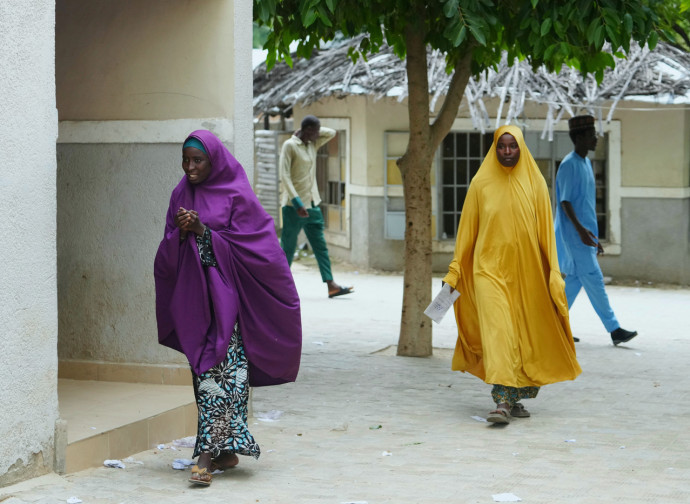Burnt alive for being 'blasphemous'. The sharia law in Islamic Nigeria.
A street vendor is accused of blasphemy by a customer, the police fail to protect her, and she is lynched and burned alive by the mob. This is how the Sharia law works in the northern states of Nigeria, in force for the last 25 years.

On 30 August, a woman was burned alive in Kasuwan-Garba, a village in Niger State, one of Nigeria's 12 states with a Muslim majority. Amaye was a Muslim woman who cooked and sold food at the market, and she was well known in the village. According to reports gathered by the local media, one of her customers jokingly proposed to her that afternoon. It is not known how Amaye responded. But some of those present considered her response to be blasphemous and offensive to Muhammad. That was all it took. According to reports, Amaye was first taken to the police station for questioning. However, in the meantime, the gossip had spread and a crowd gathered. Becoming increasingly excited and furious, the crowd overpowered the officers and, before reinforcements arrived, dragged Amaye away beat and set her on fire.
Such cases are not uncommon in northern Nigeria. In 1999, 12 Muslim-majority states, including Niger, violated the constitution by adopting Sharia law. Islamic fundamentalism has gained followers in these areas. A significant number of the population demand absolute compliance with Sharia law. The Christian minority has had to adapt to restrictions limiting contact between the sexes and the production and consumption of alcoholic beverages, for example. In accordance with Sharia law, corporal punishment has been reintroduced. In Zamfara State, the first amputation was carried out in 2000 on a man accused of theft. In the following two years, it was only thanks to international pressure that two women accused of adultery, Amina Lawal in Katsina and Safiya Hussaini in Sokoto, escaped death by stoning.
As in Iran, the religious police monitor the faithful to ensure they behave as prescribed. They are authorised to shave the heads of men with inappropriate haircuts and to punish those who violate dress codes. In 2021, the religious police in Kano forced shopkeepers to use headless mannequins only, "so that they do not look like human beings", and to never display them in shop windows without clothes, "in accordance with Sharia law, which prohibits the display of certain parts of the body": almost all of them in the case of women.
In areas where Sharia law is in force, blasphemy is a criminal offence punishable by up to two years' imprisonment. Even in the rest of Nigeria, the penal code states that 'anyone who commits an act that any category of persons considers a public insult to their religion, with the intention that such an act be considered as such; or anyone who commits an act with the knowledge and intention of causing offence to any category of persons, commits an offence', for which up to two years' imprisonment is provided.
But for many Muslims, this does not suffice and not for those who killed Amaye. Nor is it enough for those who stoned Usman Bud, a Muslim father of six who worked as a butcher in a market in Sokoto, the capital of the state of the same name, to death in June 2023 for comments deemed offensive to Muhammad. The stoning was filmed and the video circulated; it shows the man being killed by sticks and stones while people encourage children to throw stones too. Although the government authorities condemned the murder on that occasion, they failed to offer their condolences to the family. Few people attended Usman's wake, as there is a strong social stigma attached to those accused of blasphemy.
The previous year, in the same state, Deborah Samuel, a Christian student, was lynched by her Muslim classmates, who then burned her body after killing her. She had been accused of posting an offensive comment about Muhammad on WhatsApp. The school authorities had taken her to a safe room, but the students broke in and took her away. When the police arrived, they fired tear gas at the students and then fired shots into the air to disperse them, but this was not enough to stop them. The country's leading religious and political leaders intervened to condemn the incident. Nigeria's most important Islamic religious leader, the Sultan of Sokoto Sa'ad Abubakar, called the violence unjustified and urged the authorities to find those responsible and bring them to justice. The state governor, Aminu Waziri Tambuwal, appealed to people of all faiths to continue living in peace. However, a curfew had to be imposed in the state to stop demonstrators demanding the release of two young men who had been arrested on suspicion of being involved in the murder.
Muslim Rights Concern (Muric), a Muslim association whose motto is 'Dialogue, not violence', also intervened in the Amaye case. The association defends human rights and is also known for its firm stance against corruption. It proclaims that it carries out all its actions 'in obedience to the divine commandments of Almighty Allah'. Muric has joined other authoritative voices, both governmental and religious, in condemning the murder. In a statement, Professor Ishaq Akintola, director of Muric, described Amaye's murder as 'extrajudicial, barbaric and un-Islamic'.
There is one interpretation of Islam that burns blasphemers, and another that believes it is 'un-Islamic' to do so. These two versions of Islam confront and clash on crucial issues, both 'in the name of Almighty Allah'. The outcome of this confrontation/clash will determine the future for everyone. Coexistence, or even an alliance, is possible with the second Islam; it is not possible with the first, even if we try, because its mission is jihad: holy war to subjugate all of humanity.
